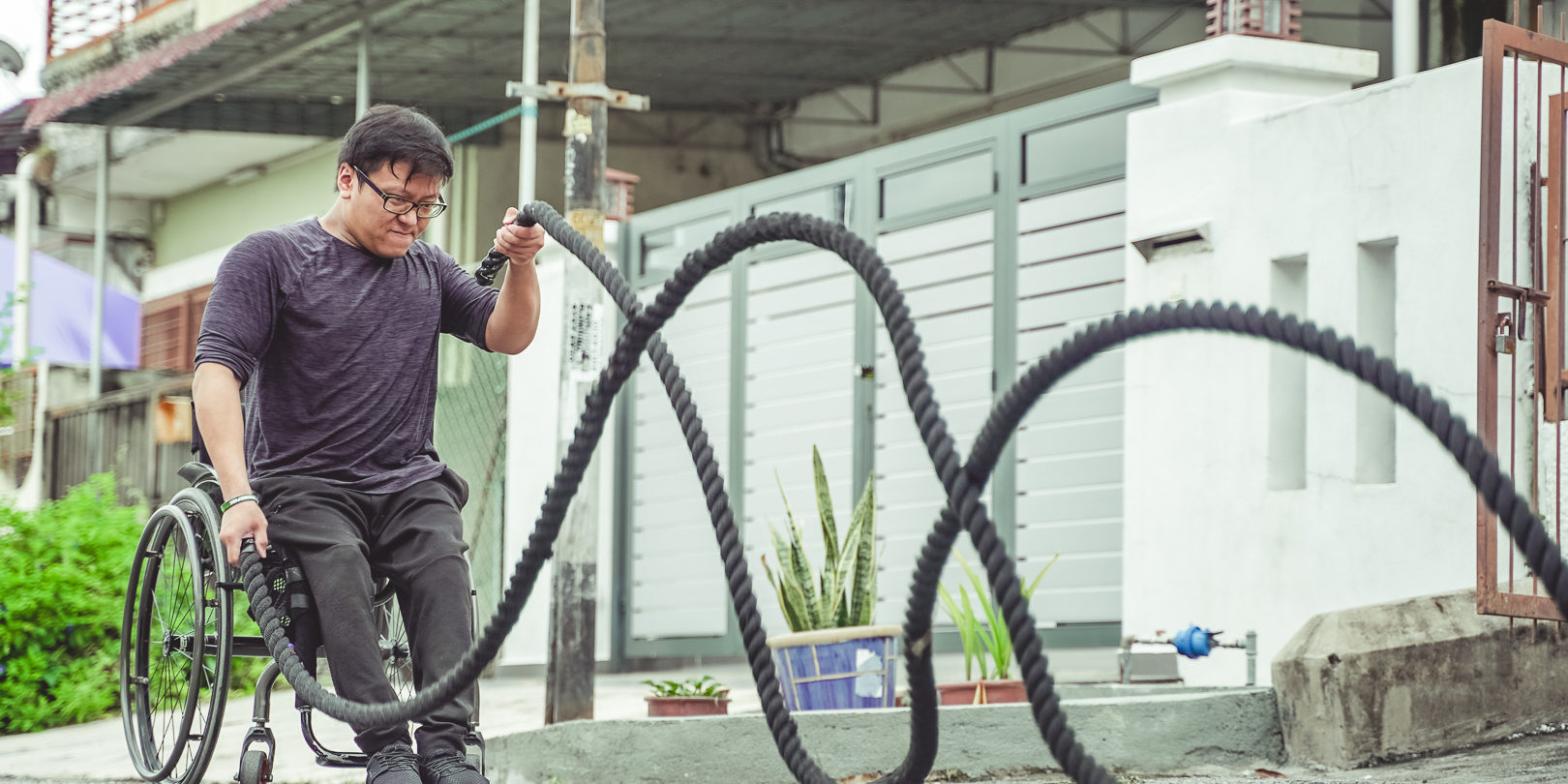“My wheelchair is a symbol of freedom, not of limitation”
Daniel Lee, 30, from Kuala Lumpur in Malaysia works with leadership management in sports. He is also currently training to become a wheelchair racer and he serves as an Open Book with the Human Library. His topic within the library is Wheelchair User and he is helping provide his Readers with the perspective of a man, who sees his wheelchair as anything but a limitation.
Stopped walking at 3 years old
Daniel suffers from Osteogenesis Imperfecta which means that his bones break very easily. Children fall, but for Daniel falling meant breaking a bone every single time. Because of the condition, Daniel stopped walking at 3 years old and his mother had to carry him around, as the family couldn’t afford a wheelchair at the time.
As Daniel couldn’t run around and play like the other children, he felt like he wasn’t a part of his local community. He had to rely on his mother to carry him around, which limited his possibilities for socializing with the other children in the neighborhood.
Wheelchair brought independence
By the age of 10, Daniel finally received his wheelchair. From not being able to move on his own for the last 7 years, Daniel finally felt free when receiving his wheelchair,
“I became more and more independent. And I love being in my wheelchair. I can go places on my own without the help of others,” he says.
From the perspective of an able-bodied person, being in a wheelchair could seem like a limitation, but for Daniel it is anything but.
“My wheelchair is a symbol of freedom, not of limitation. My condition is the limitation but my wheelchair helps me break the boundaries of the condition,” he explains.
This perspective is exactly what Daniel brings into the conversation when publishing at the Human Library.
Challenging people’s preconceptions
“I really enjoy challenging people’s preconceptions, and the Human Library provides a platform for exactly that and an opportunity to connect. When engaging with the Readers, I can feel a shift in perspective. A lot of people have good intentions but lack an understanding of what disabled people can and can’t do. They don’t expect that we can use public transportation or become leaders. Being out alone in public in a wheelchair is inspirational in Malaysia but good intentions and inspiration is not a way of normalizing the view on the abilities of disabled people”, he continues.
Therefore Daniel is involved with leadership management in sports,
“I use disciplines such as Sitting Volleyball and Blind Football as a way of promoting inclusion in sports. I just returned from a conference in the US helping people understand what they should take into consideration for the people in their communities, who have a different way of life than themselves”.
Sports as a way of impacting communities
Daniel has always been interested in sports. When he was younger, he competed in the Asian Youth Para Games in Sitting Volleyball, and he is currently training to become a wheelchair racer. Daniel has found a way to combine his passion for sports and his devotion to inclusion,
“I use sports as a way of impacting communities. I share my life experience with students and companies to motivate and inspire others”.
He wants to empower disabled people as much as he wants society to understand that being in a wheelchair should not limit your possibilities.
“I wish there would come a day that being out in public is not inspirational, but just normal. If you want to be inspired, be inspired by all the other things that people can do,” he states.
Daniel can be found on loan at Human Library events in Kuala Lumpur, Malaysia and online.
**Disability and indeed diversity language varies internationally and individually. This interview reflects the book’s own words and views.





